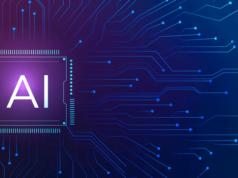Ethical Dilemmas in AI: Navigating the Challenges of Bias and Fairness
The ascent of Artificial Intelligence (AI) has demonstrated to be a progressive influence across different industries, generally altering our ways of life and professional landscapes. As AI advancements progress, the meaning of ethical considerations in artificial intelligence develops more articulated. The ethical intricacies inherent in AI cover a wide range of issues, with a specific spotlight on bias and fairness. Within this article, we leave on an investigation of the nuanced terrain of AI ethics, aiming to illuminate the ethical challenges intertwined with issues of bias, fairness, and the upright development of AI.
AI Ethics: A Primer
AI ethics alludes to the principles and guidelines that oversee the development and organization of artificial intelligence frameworks. As AI turns out to be more unavoidable, the requirement for ethical considerations in artificial intelligence has developed altogether. The ethical component of AI stretches out past specialized viewpoints, encompassing the social, social, and moral implications of AI frameworks.
Ethical Decision-Making in AI
At the center of AI ethics is the trial of making ethical decisions generally through the development lifecycle of AI systems. Planners, engineers, and policymakers grapple with complex inquiries associated with the impact of AI on society, security, and normal freedoms. Ethical AI development requires a sweeping philosophy, considering the specific viewpoints as well as the greater social implications.
Bias in AI: A Pervasive Challenge
Bias in AI is a basic ethical worry that has gathered broad consideration. AI frameworks, often trained on verifiable information, can inherit and propagate existing biases present in the information. This bias can appear in different structures, including racial, orientation, and financial biases. The unintended results of biased AI frameworks can prompt discriminatory results, reinforcing and exacerbating existing inequalities.
Algorithmic Fairness and Fair AI Practices
Addressing bias in AI requires an emphasis on algorithmic fairness and the execution of fair AI practices. Algorithmic fairness aims to guarantee that AI frameworks treat all individuals and gatherings fairly, without favoring or discriminating against a specific segment. Fair AI practices involve designing calculations and models that relieve bias, advance inclusivity, and focus on impartial results.
AI Bias Mitigation: Strategies and Challenges
Mitigating bias in AI involves adopting methodologies to recognize, understand, and correct biased results. Procedures, for example, fairness-mindful machine learning, debasing calculations, and various dataset curations assume a pivotal part in minimizing bias. Be that as it may, challenges endure, including the requirement for powerful assessment measurements, transparency in AI processes, and continuous monitoring to address evolving biases
Diversity and its Role in Ethical AI
AI and diversity are interconnected parts of ethical AI development. Diversity in information, groups, and points of view is fundamental to creating AI frameworks that are inclusive and unbiased. Various datasets assist with preventing the intensification of existing biases, while different groups bring a scope of points of view to the development cycle, leading to additional ethical and evenhanded results
Transparency in AI: Building Trust through Disclosure
Transparency in AI is a vital component in building trust and addressing ethical worries. Ethical AI development requires transparency in the decision-making cycles of AI frameworks. Straightforwardly communicating the objectives, techniques, and likely biases of AI models encourages accountability and permits clients to understand and challenge the decisions made by AI frameworks.
AI Accountability: Navigating the Responsibility Maze
Navigating the ethical landscape of AI involves grappling with the issue of accountability. Deciphering liability regarding the activities and decisions of AI frameworks is a multi-layered challenge. It is basic to lay out straightforward lines of accountability to actually address the ethical implications of machine learning. This interaction guarantees that the advantages of AI are evenhandedly appropriated while at the same time minimizing the potential for hurt. Clarifying accountability is a crucial stage in fostering responsible AI development and mitigating the ethical challenges inherent in the quickly evolving field of artificial intelligence
Ethical Guidelines for AI Development
Delving into the ethical intricacies of AI, the development neighborhood proactively laid out all out ethical guidelines to coordinate AI development. These guidelines are apparently an exciting system for fostering responsible AI development, placing solid areas for essential key principles like transparency, fairness, accountability, and the vigilant thought of social effects. Crazy adherence to these ethical guidelines is central, as it shapes the foundation for the making of AI structures that line up with ethical standards and genuinely revolve around society. Embracing these guidelines guarantees the integrity of AI structures as well as reinforces the obligation to ethical practices, as such promoting the responsible development of artificial intelligence in a way that is colossal and fair for society at large.
AI and Civil Rights: Bridging the Separation
The ethical implications of machine learning are intricately linked to issues of social correspondence. AI designs could possibly either reinforce existing social inequalities or add to positive social change. By prioritizing fairness, inclusivity, and social effect in AI development, crossing over the opening and use AI as an instrument for advancing social equity is conceivable.
Bias Detection in AI: A Continuous Endeavor
Detecting bias in AI is an ongoing cycle that requires cautiousness and continuous improvement. Ethical AI development involves implementing components for bias location, monitoring framework execution, and responding to criticism from clients and partners. By adopting a proactive way to deal with bias recognition, engineers can minimize the effect of biased results and refine AI frameworks to line up with ethical standards.
Unbiased Machine Learning: Fantasy or Reality?
Achieving unbiased machine learning is a perplexing and challenging objective. While the complete elimination of bias might be unattainable, responsible AI development involves striving for fairness and value. Unbiased machine learning requires ongoing endeavors to recognize and address biases, repeat models, and draw in assorted partners to guarantee that AI frameworks advance toward more prominent fairness over the long run.
Conclusion
Ethical issues in AI, especially connected with bias and fairness, highlight the principle for responsible AI development. Addressing these challenges requires a perplexing viewpoint that involves ethical decision-making, algorithmic fairness, diversity, transparency, and ongoing accountability. By prioritizing ethical considerations in artificial intelligence, we can saddle the extraordinary furthest reaches of AI while ensuring that its advantages are shared unbiasedly and that its effect on society is positive and just. As AI continues to instigate, the ethical defense for navigating bias and fairness remains at the genuine front of responsible AI development.








